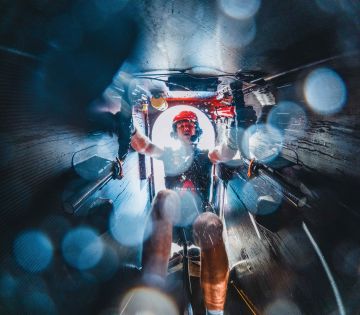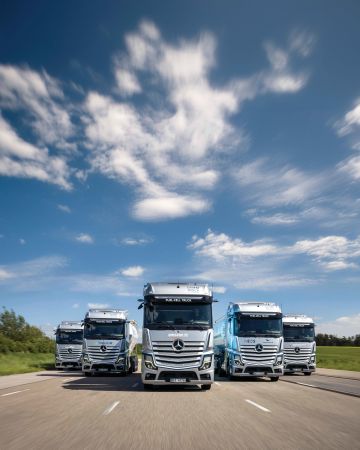TRUCKS, fuelled entirely by liquid hydrogen, will soon begin transporting goods in Germany as part of a year-long trial. Vervaeke, which will be transporting up to 25 tonnes of PVC for INEOS Inovyn, is among the five companies that have agreed to test the prototype Mercedes-Benz GenH2 Truck – a truck that covered 1,047km on a single tank of liquid hydrogen in 2023.
If the latest trials are successful, it could encourage the haulage industry to start switching from diesel vehicles to zero emission hydrogen-powered HGVs.
“The market is still showing hesitancy so we want to show that it can be done, because hydrogen is a game-changing source of energy which will help us to meet Europe’s net zero targets and reduce CO2” said Wouter Bleukx, INEOS Hydrogen Business Director.
Last year INEOS Inovyn became the first company in Europe to use a hydrogen truck to transport PVC from its production plant in Tavaux to Benvic’s PVC compound plant in Dijon.
Geir Tuft, CEO INEOS Inovyn, described that as a historic moment for INEOS.
“Using hydrogen trucks for product deliveries is a key part of our sustainability roadmap which aims to drastically reduce our CO2 footprint over the next few years,” he said.
INEOS Inovyn is one of the largest operators of industrial electrolysis, the technology necessary to produce renewable hydrogen, and produces 60,000 tonnes of low-carbon hydrogen annually across multiple sites.
As both a user and producer of hydrogen, it is in a unique position to lead the transition to a hydrogen-powered economy. INEOS Inovyn has worked with Vervaeke for many years.
“Our two companies share the same vision,” said Frédéric Derumeaux, CEO of Vervaeke. “So we are delighted to have their confidence to collaborate on a ground-breaking project that promotes sustainability.”
During the 12-month trial with Daimler Truck AG, the HGVs will be refuelled at designated public liquid hydrogen filling stations in Wörth am Rhein and in the Duisburg area.
But it is widely believed that hydrogen will only become the fuel of choice for buses and HGVs if more countries invest in the infrastructure.
Currently Japan leads the way with about 170 hydrogen refuelling stations compared to 96 in Germany, 21 in France and nine in the UK.










